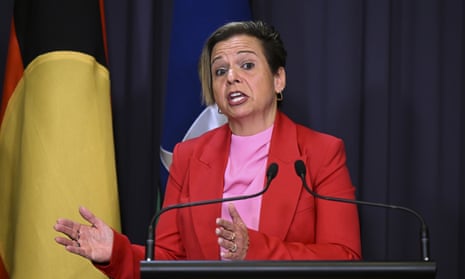Extract from The Guardian
Government says Acma will be able to impose a compulsory code of conduct against disinformation on digital platforms.

Fri 20 Jan 2023 10.52 AEDT
Last modified on Fri 20 Jan 2023 12.29 AEDTThe communications minister revealed on Friday that the Australian Communications and Media Authority will also be given new information-gathering powers to assess how platforms, including social media companies, respond to misinformation and disinformation.
The move follows the Digital Industry Group Inc – whose members include Google, Apple, Meta, Twitter and TikTok – toughening up its voluntary code of conduct in December.
Digi welcomed the announcement, which it said would give Acma a “longer-term mandate to oversee” the code against online misinformation and disinformation while still leaving Digi to develop and administer it.
Rowland said Acma would be able to enact an enforceable industry code if industry self-regulation measures prove insufficient. New information-gathering powers will extend to non-signatories of Digi’s voluntary code.
Digital platforms will continue to be responsible for the content they host and promote to users and the Acma will not have a role in determining what is truthful.The code and standard-making powers will not apply to professional news and authorised electoral content.
“Misinformation
and disinformation pose a threat to the safety and wellbeing of
Australians, as well as to our democracy, society and economy,” Rowland
said in a statement.
“A new and graduated set of powers will
enable the Acma to monitor efforts and compel digital platforms to do
more, placing Australia at the forefront in tackling harmful online
misinformation and disinformation.
“The Albanese government will
consult with industry and the public on an exposure draft of legislation
in the first half of this year and looks forward to constructive
engagement with stakeholders and industry.”
Digi managing director, Sunita Bose, said it was “committed to driving improvements in the management of mis- and disinformation in Australia, demonstrated through our track record of work with signatory companies to develop and strengthen the industry code”.
“We welcome that this announcement aims to reinforce Digi’s efforts, and that it formalises our long-term working relationship with the Acma in relation to combatting misinformation online,” she said.
In December Digi updated the code to redefine harm as communication containing a “serious and credible” threat but dropping the requirement that harm must be “imminent”.
In January the Acma told Guardian Australia it would continue to push for powers to compel tech companies to hand over information about how they are combatting misinformation, and warned the updated code still fails to tackle large-scale group messaging.
Acma wants a “more robust reporting framework and the expansion of the code to cover the propagation of mis- and disinformation on messaging services that facilitate large-scale group messaging”, it said.
Mass or orchestrated direct messages have played a role in false rumours about child abduction spreading in India through WhatsApp and in Australia in the death tax scare campaign at the 2019 election via Facebook messenger.
No comments:
Post a Comment